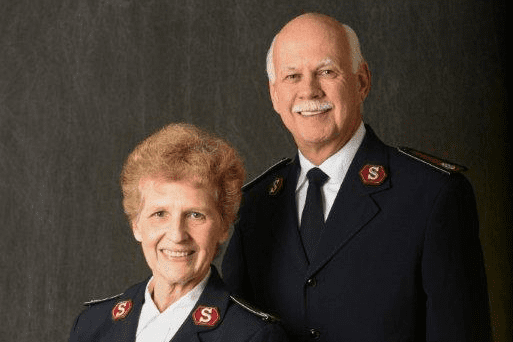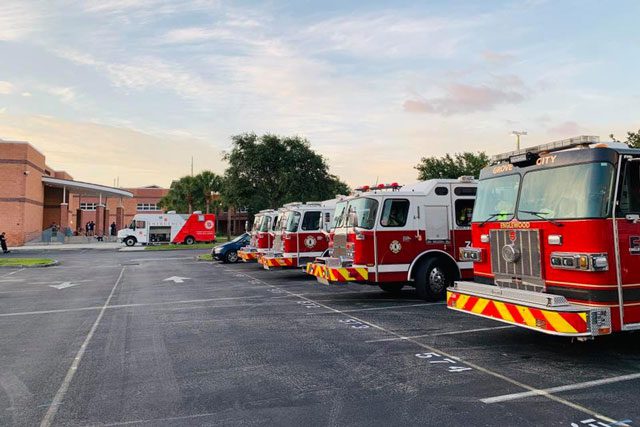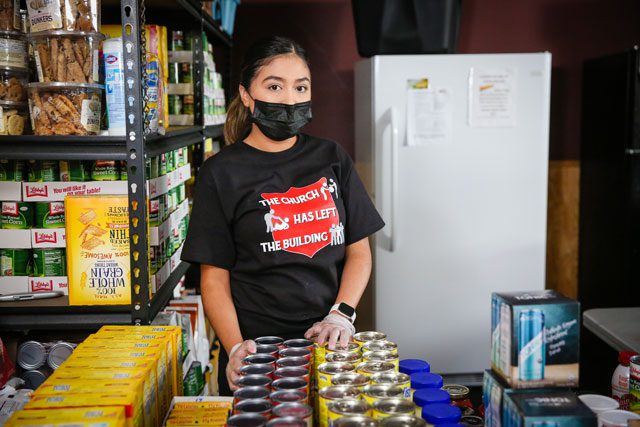Chicago facility offers recovery option for girls and boys ages 13–17.
By Alma Bahman –
The adolescent brain often draws comparisons to a car with a fully functioning gas pedal but weak brakes. The gas pedal (reward system) is fully developed, but the brakes (prefrontal cortex) have not fully matured. Because of this, the adolescent years mark a critical period of vulnerability to substance use disorders.
In Chicago’s Humboldt Park neighborhood, 34 percent of the community is under the age of 20. So when The Salvation Army opened the Freedom Center in September 2015, Laura Garcia, now its Director of Clinical Programs, said she knew The Salvation Army was a perfect partner to help this vulnerable population. The 188,000-square-foot community center is also home to the Harbor Light Center, The Salvation Army’s adult rehabilitation program, which started serving adolescents ages 13–17 at the start of 2016.
Adolescents receive referrals to the Harbor Light Center from the city’s probation department, their schools or their parents. A counselor sets up a detailed assessment that examines the adolescent’s home life, school life, developmental disabilities and any other social or economic challenges. The duration of weekly counseling sessions then depend on the individual’s case.
While the symptoms of substance abuse disorders are the same in adolescents and adults, treating adolescents requires a tailored response. Studies show that teen substance abuse stems from low self-esteem, peer pressure, and personal views on the risks and approval of substances. Research also suggests the greater the parental involvement, the lower the levels of substance abuse among adolescents.
“Sometimes, parents may not understand what recovery is,” said Bob Carty, Director of Clinical Programs at the Hazelden Betty Ford Clinic. “They want their old Johnny back, but he doesn’t exist anymore.”
For adolescents at the Harbor Light Center, Garcia said, it’s not uncommon for the parents to have their own substance abuse problems.
“Our adolescents report that their parents aren’t able to provide basic needs, like winter clothing,” Garcia said. “We offer an opportunity to talk to a trained and experienced counselor to help increase their self efficacy, and help them make better choices. We’re exposing them to the tools that are available.”
The effort includes supporting the adolescent’s broader life needs, such as those related to medical, psychological and social well-being, as well as housing, school and transportation.
Despite the frequent challenges of mindset and dedication in this population, even a chance at recovery may make the difference for some. For instance, Harbor Light Center takes referrals from Chicago’s probation department; sessions with a counselor are more desirable than paying a fine or receiving a harsher punishment.
“The reality is that actual treatment programs are few and far between,” Carty said. “That becomes a little bit more of a problem because sometimes adolescents do need to be out of their home environments to work on their addiction and recovery. We could use more recovery homes, like halfway houses. There are voids in those kinds of resources.”
Though still in its infancy, the program officials have lofty ambitions.
“The next step is to strengthen the referral system, to reach the families and utilize the services The Salvation Army has,” Garcia said.
That means building stronger programs through the Freedom Center to connect adolescents with mentors, art therapists, basketball teams and other social activities to aid in their recovery.
“From the day we opened our doors, our staff sees these adolescents as children of God,” Garcia said. “We’ve been here extra hours to make sure a child can get a snack or help them get home safe, and maybe find a way to get them the care they need.”

Listen to this article












